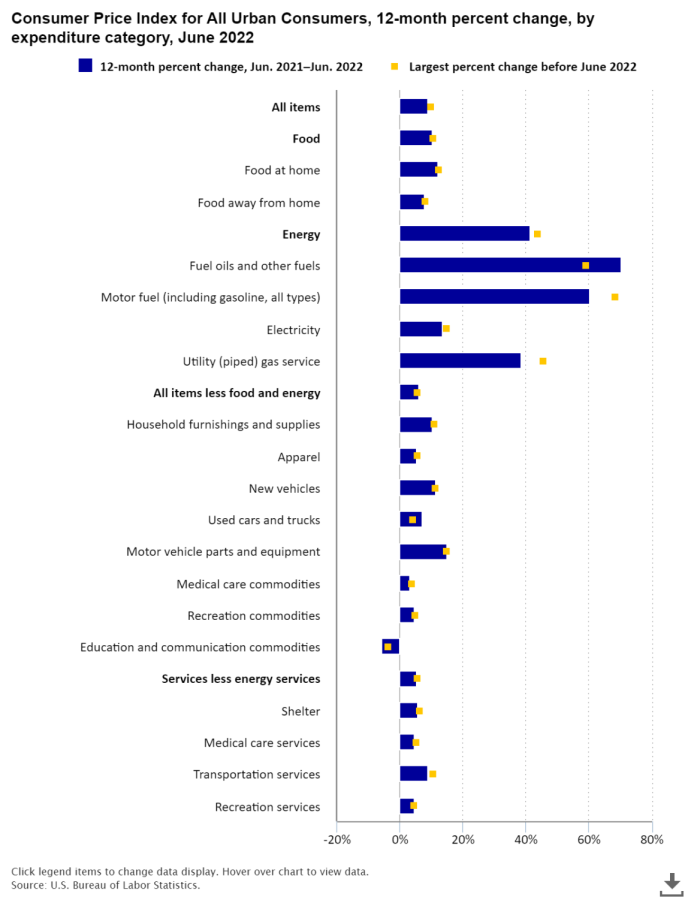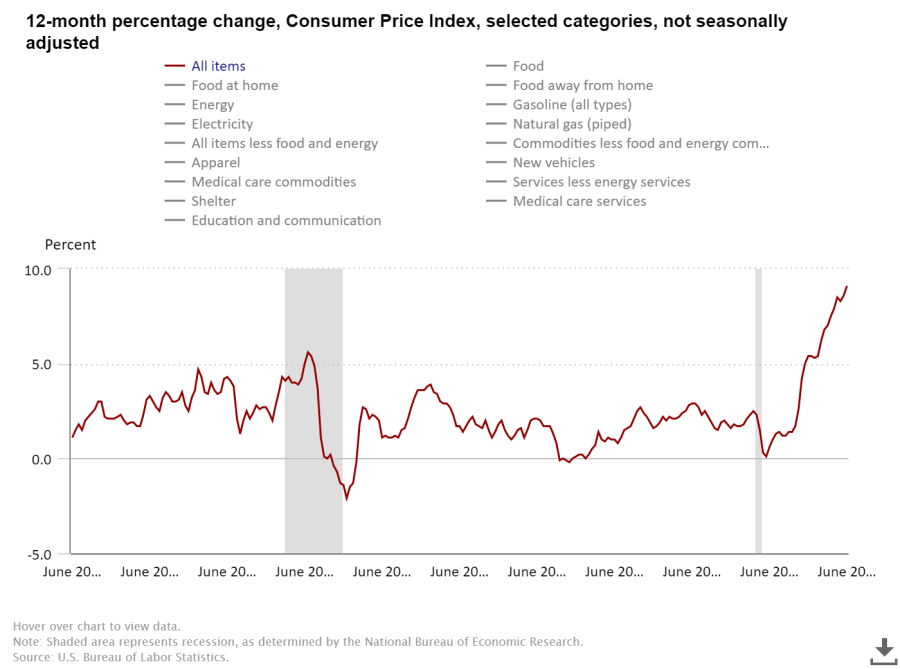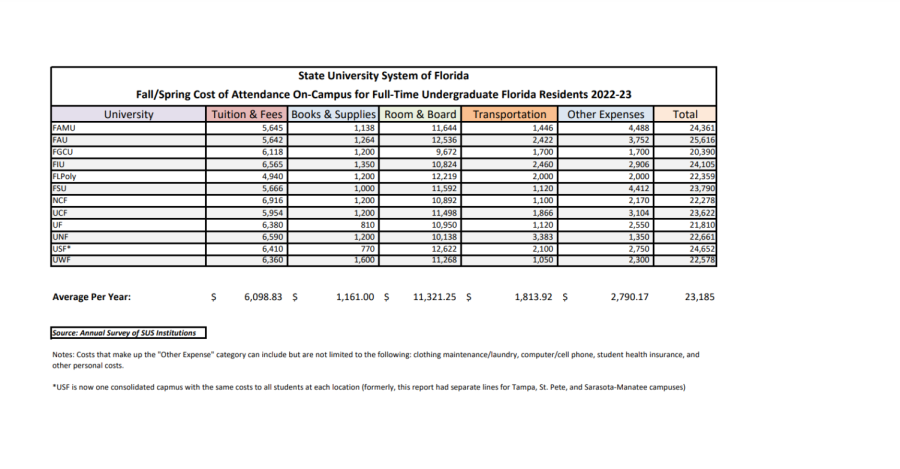Being a college student is already expensive. Balancing school and work are challenging, and with inflation on the rise, tuition, meal plans, and housing might concern you.
The United States Consumer Price Index (CPI) recorded an increase in inflation in June 2022 at 9.1%, surpassing the June 2021 report, which stood at 5.4%. This means practically everything is costing consumers a pretty penny. Inflation isn’t just about products. It affects many other things, from services to labor wages.
“The current rates of inflation that we’re experiencing, we haven’t experienced since the 1970s,” Dr. Russell Triplett, chair of the department of economics and geography for the University of North Florida’s Coggin College of Business, said. “For a long time, inflation in the U.S. has fluctuated up 2 to 3% on an annual basis. It never was perceived as a problem until now.”
Dr. Triplett explained macro and micro-economic analysis help determine whether an economy is experiencing inflation. Macro, meaning large, refers to the whole economy, employment and inflation all across the board, while micro, meaning small, refers to particular prices fluctuating.
For example, if economists notice that agriculture, gas, transportation, and motor vehicle prices are increasing together, then there’s inflation. But if it’s just one factor that’s increasing, such as gas prices alone, then economists can discuss why that particular area is experiencing inflation.

“The biggest contributors to those inflation numbers were energy, food and housing,” Dr. Triplett said. “Then ask yourself, how important is the spending and consumption of those things? I suspect for any college student, and for that matter, any faculty or staff member, all three of those are really important to our daily lives.”

These three main contributions Dr. Triplett listed are significant in most everyone’s lives. As for college students, balancing a work and school schedule all in a week gets difficult. Advisors recommend full-time students only work around 20 hours a week to have enough time for school. This can be complicated if their living situation becomes more costly.
To understand how these contributors impact college students within the institution, a student must consider the factors. Energy refers to electricity, fuel and gas, which are important for those who commute on campus, or even the shuttles provided to travel. These can also mean air conditioning, projectors and internet access in school. Food could impact the costs of meal plans or change up students’ grocery lists. And housing is significant for both those who live on and off-campus. Off-campus students might face an increase in rent and utilities, while on-campus students might face waitlists when signing up for dorms.
These three contributors are a part of tuition and associated fees at each institution to make sure it runs every academic year.
For more information regarding UNFs tuition fees rates for this upcoming school year, click here.

The cost of attendance generally doesn’t change drastically and typically goes through a system of proposals from the university’s Board of Trustees. Tuition at UNF and other Florida universities is regulated under 7.001 tuition and associated fees. An increase in tuition is discussed between the university and the state of Florida every year when the budget is being determined. As for now, there is no proposal to increase UNF’s tuition for this academic school year.
For more information regarding the rules of 7.001 tuition and associated fees, click here.
___
For more information or news tips, or if you see an error in this story or have any compliments or concerns, contact editor@unfspinnaker.com.
















